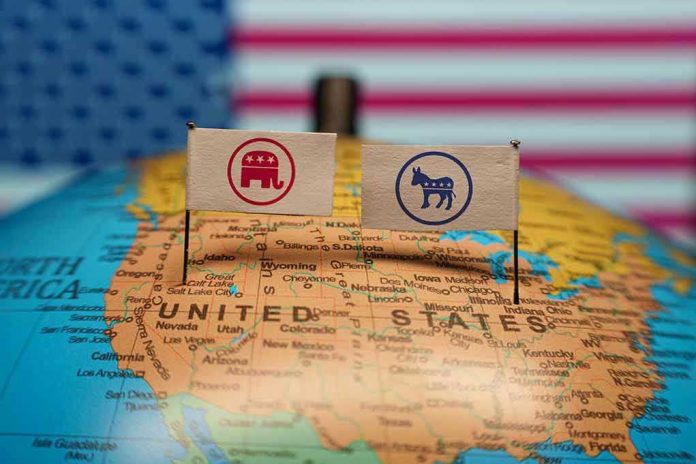
Wisconsin’s political landscape is set for a seismic shift as Democratic Governor Tony Evers announces he won’t seek a third term, leaving an open field for Republicans to potentially gain control.
At a Glance
- Governor Tony Evers will not run for a third term in 2026.
- His decision opens the door for Republicans to recapture the governorship.
- Evers’ tenure was marked by frequent clashes with a Republican-controlled legislature.
- Wisconsin’s 2026 gubernatorial race is expected to be highly competitive and costly.
Governor Tony Evers Bows Out
Governor Tony Evers, a stalwart of Wisconsin’s Democratic establishment, announced on July 24, 2025, that he would not pursue a third term in office, citing personal reasons and a desire to conclude his extensive career in public service. Evers, who has spent over five decades dedicated to education and public governance, expressed gratitude for his family’s support and sacrifices during his tenure. This decision marks a significant turning point, particularly given the state’s history of closely contested elections and divided government.
Evers’ administration faced numerous challenges, notably navigating the COVID-19 pandemic, where he prioritized public health measures and education funding. However, his efforts often met roadblocks from a Republican-controlled legislature, leading to frequent policy standoffs. His decision not to seek re-election sets the stage for a highly competitive gubernatorial race in 2026, with both parties eager to seize the opportunity.
Implications for Wisconsin’s Political Future
The announcement throws open the race for Wisconsin’s governorship, with Republicans eyeing a prime chance to flip the seat. The Wisconsin Republican Party is gearing up to rally behind a candidate who aligns with conservative values and aims to reverse many of Evers’ policies. On the other hand, the Democratic Party faces the challenge of nominating a strong contender to maintain control and continue advancing Evers’ agenda.
This political transition is occurring in a state that plays a crucial role in national elections, drawing significant attention from both parties and their national organizations. The 2026 gubernatorial race is anticipated to be not only highly competitive but also one of the most expensive in the state’s history, with education, healthcare, and state budgeting emerging as central campaign issues.
Impact on Policy and Governance
The open seat in Wisconsin’s gubernatorial race is expected to lead to substantial policy shifts, depending on the election outcome. Evers’ tenure was marked by a focus on enhancing public education, healthcare, and infrastructure, areas that may see changes under new leadership. The Republican Party is likely to prioritize reversing Evers’ policies, especially those related to education and healthcare funding.
For Wisconsin’s voters, particularly those in swing regions, the upcoming election presents a critical opportunity to shape the state’s future direction. The transition also holds implications for the state’s economy, as political uncertainty can influence policy planning and investment decisions. Socially, the debates on education and healthcare are set to intensify, reflecting broader national discussions on these pivotal issues.
Expert Perspectives and Analysis
Political analysts view Evers’ decision as a pivotal moment that could lead to a generational shift in Wisconsin’s leadership. The open seat presents challenges and opportunities for both parties, with Democrats needing to maintain unity and momentum without an incumbent candidate, while Republicans see a chance to regain influence in a key swing state.
Experts emphasize Wisconsin’s significance in shaping national political dynamics, particularly as a bellwether for broader trends. Evers’ legacy in education and public health is expected to be a central focus in the upcoming campaign, with candidates from both parties likely to address these issues as they vie for voter support.
Sources:
National Governors Association



